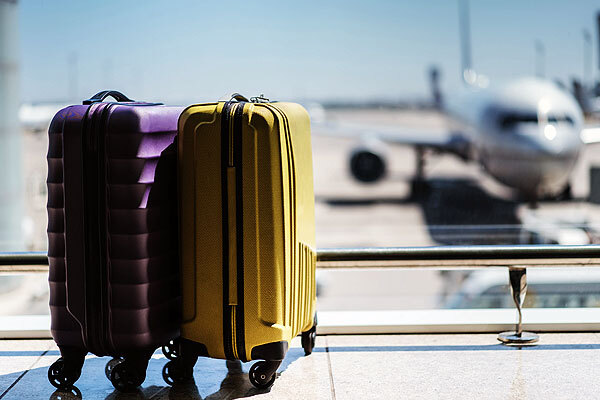More international travelers worried about running out of money than contracting the virus abroad; affording the trip is a bigger travel deterrent than COVID restrictions.
NEW YORK – A new study revealed that the COVID-19 virus is no longer the biggest stressor for U.S. consumers when it comes to traveling abroad – it’s money. Commissioned by Wise, the global technology company building the best way to move money around the world, the research found that while 43% of consumers are likely to travel internationally in the next twelve months, rising costs are impacting international travel plans for almost half (46%) of consumers.
The study also found that of the respondents who are less likely to travel abroad, the top deterrent is simply not having the money to afford it (47%), while a smaller number say COVID is a deterrent (37%), and over a quarter (27%) cite inflation. At the same time, 46% of respondents say running out of money is a top emergency they worry about when traveling abroad, while 42% worry about getting COVID and having to extend their trip to quarantine in their destination location – which, in turn, means more money spent on lodging, flight changes, dining and other everyday expenses.
“While COVID is clearly still a concern, it’s not stopping consumers from traveling. That’s why planning ahead and preparing for all travel ‘what-ifs’ is so important, which is where having a strong financial partner comes into play,” said Sharon Anne Kean, Senior Director International Expansion, Wise. “Travelers heading abroad should make sure they understand exchange rates and foreign transaction fees, and seek out a universal account, such as Wise, that can drive down extraneous costs while helping them pay like a local.”
Additional findings from the study include:
Money-saving hacks abound…but so do bad habits: The study revealed widespread economical savviness among a majority of consumers, with over four in five (84%) respondents saying they use some money-saving hacks for travel. The most popular methods include: booking during the cheapest days to fly (38%), buying groceries or dining in locally (35%), traveling during the destination's off season (31%), using a credit card with travel rewards (31%), and seeking out the cheapest exchange rates (23%).
At the same time, respondents also admit to ignorance regarding travel basics and some bad travel habits. Specifically, a majority (57%) are unsure of whether there is a cost, or think there is no cost, for spending money internationally. Additionally, when it comes to other habits, consumers noted they do not plan activities ahead of time (41%), do not budget enough money when booking travel plans (30%), book their travel last minute (22%), and forget to exchange currencies ahead of time (17%).
Plus, more than 1 in 10 (12%) admit to booking travel plans based on what they see on social media without considering budget. That number more than doubles to more than 27%, when looking at the Gen Z population specifically.
The great currency debate: To cash or not to cash?: The research also revealed mixed approaches for how consumers plan to pay their way while traveling abroad, and spoke to common themes for plans to use or not use physical cash. Of the four in five (79%) who plan to use physical currency, their reasons include wanting to have cash on hand in case of emergencies (62%), wanting to be prepared to pay where a card is not accepted (51%), believing merchants located in their destination will require them to use cash (31%), and wanting to pay like a local (27%).
Of the almost one-quarter (21%) of respondents that do not plan to use physical currency, reasons include: they plan to use a debit or credit card (55%), they are concerned about their safety (23%) and they worry about high exchange rates (22%). The same number of respondents (17% each) say they intend to use a digital wallet, plan to visit multiple destinations that require too many currencies, or don't want the hassle of exchanging leftover cash. Additionally, one in 10 (11%) of travelers plan to use a money transfer app to pay for things abroad.
Managing money abroad: pay like a local
With international travel on the rise, consumers need convenient, fast and affordable ways to manage their money on the go. Wise empowers consumers and businesses to send, spend, hold and receive in more than 50 currencies, at the real exchange rate without the hidden fees charged by banks and alternative providers. With Wise, travelers can take the fuss and fees out of managing their money so they can focus on what matters most: enjoying their journeys abroad.
Vicky is the co-founder of TravelDailyNews Media Network where she is the Editor-in Chief. She is also responsible for the daily operation and the financial policy. She holds a Bachelor's degree in Tourism Business Administration from the Technical University of Athens and a Master in Business Administration (MBA) from the University of Wales.
She has many years of both academic and industrial experience within the travel industry. She has written/edited numerous articles in various tourism magazines.








































































































































































